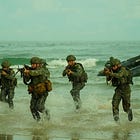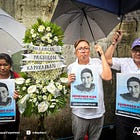Philippines Must Resist Foreign Meddling in Orthodox Church Dispute

There is trouble in a paradise.
In Panglao, a well-known tourist destination in the central Philippines due to its pristine beaches and turquoise waters, the first Russian Orthodox Church is rising this year under the Diocese of the Russian Orthodox Church in the Philippines and Vietnam.
The Orthodox church on the small island of Bohol is intended for a small community of Orthodox Christians as well as Russian and Eastern European tourists.
However, there were reports that some other Christian churches have been trying to disrupt the opening of the Russian Orthodox Church in Panglao. In fairness, the Roman Catholic Church, the dominant religion in the Philippines, with more than 80 percent of the population, is not involved.
The Christian Orthodox religion is not new in the Philippines. It came right after Spain brought the Roman Catholic faith in the 17th century, with Greeks and Armenian settlers in the country.
Truth matters. Quality journalism costs.
Your subscription to Mencari (Australia) directly funds the investigative reporting our democracy needs. For less than a coffee per week, you enable our journalists to uncover stories that powerful interests would rather keep hidden. There is no corporate influence involved. No compromises. Just honest journalism when we need it most.
In the 1920s and 1930s, a few Russian Orthodox faithful had settled in the Philippines after escaping from the Soviet Union following the Bolshevik Revolution. Some Filipinos were converted, and a few became Orthodox priests.
They have worship services in Paranaque, Banate in Iloilo, and some parts of Mindanao. The Orthodox church in Panglao, known as the “Mother of God, She who is quick to hear,” is the first of its kind, a Russian-style structure.
The Eastern Orthodox Church, with 230 million followers worldwide, is one of three major doctrinal and jurisdictional groups of Christianity. The two others are the Roman Catholic Church and various Protestant denominations.
The Eastern Orthodox Church is centered in Eastern and Southeastern Europe and Russia, with the Ecumenical Patriarch of Constantinople recognized as “primus inter pares” with the Pope in the Vatican since 1054, or the Great Schism - the break of the Latin Church in Rome and the Orthodox Church in what is now called Istanbul.
Since 2018, the Orthodox Church in Moscow and Constantinople have not been in full communion with each other. there is a dangerous mix between politics and religion.
Some Western secular benefactors in the US, Europe, and the United Kingdom may have influenced these groups through charity funds and NGOs, manipulating the small religious community to oppose Russian interests through the Orthodox Church.
This could also be connected with the conflict in Ukraine, as the Americans, British, and the Europeans were backing Kyiv against Moscow. the Western powers could be working through the Church Commissioners for England and the UCC to disrupt the Orthodox Church activities in Southeast Asian counties like Indonesia, Malaysia, the Philippines, Singapore, Thailand and Vietnam.
The Association of Southeast Asian Nations (ASEAN) should separate politics from religion, resisting pressure from Western countries to disrupt Orthodox churches. In the Philippines, for instance, some groups, identified with the United Church of Christ in the Philippines (UCCP) were attempting to disrupt the Orthodox church opening later this year.
Although the attempts may not succeed, these are clear signs that some groups were being manipulated to drive a wedge among Christian churches. The Patriarch of the Russian Orthodox Church has supported Moscow’s actions in Kyiv, and this could be a factor that some groups opposed to the Orthodox church in Bohol.
Politics should be separated from religion, and the Philippine government must not allow it to happen. It should not tolerate the disruptive activity of some local groups aimed at any religious group, including the Orthodox Church.
After all, Pope Leo XIV has been preaching to a strong inter-religious dialogue and building a bridge with other non-Roman Catholic churches worldwide, a view shared by the heads of other global religious leaders. Respect and tolerance must prevail.
The opinions expressed are those of the author and do not necessarily represent the views of this publication.
Got a News Tip?
Contact our editor via Proton Mail encrypted, X Direct Message, LinkedIn, or email. You can securely message him on Signal by using his username, Miko Santos.
Sustaining Mencari Requires Your Support
Independent journalism costs money. Help us continue delivering in-depth investigations and unfiltered commentary on the world's real stories. Your financial contribution enables thorough investigative work and thoughtful analysis, all supported by a dedicated community committed to accuracy and transparency.
Subscribe today to unlock our full archive of investigative reporting and fearless analysis. Subscribing to independent media outlets represents more than just information consumption—it embodies a commitment to factual reporting.
Not ready to be paid subscribe, but appreciate the newsletter ? Grab us a beer or snag the exclusive ad spot at the top of next week's newsletter.







